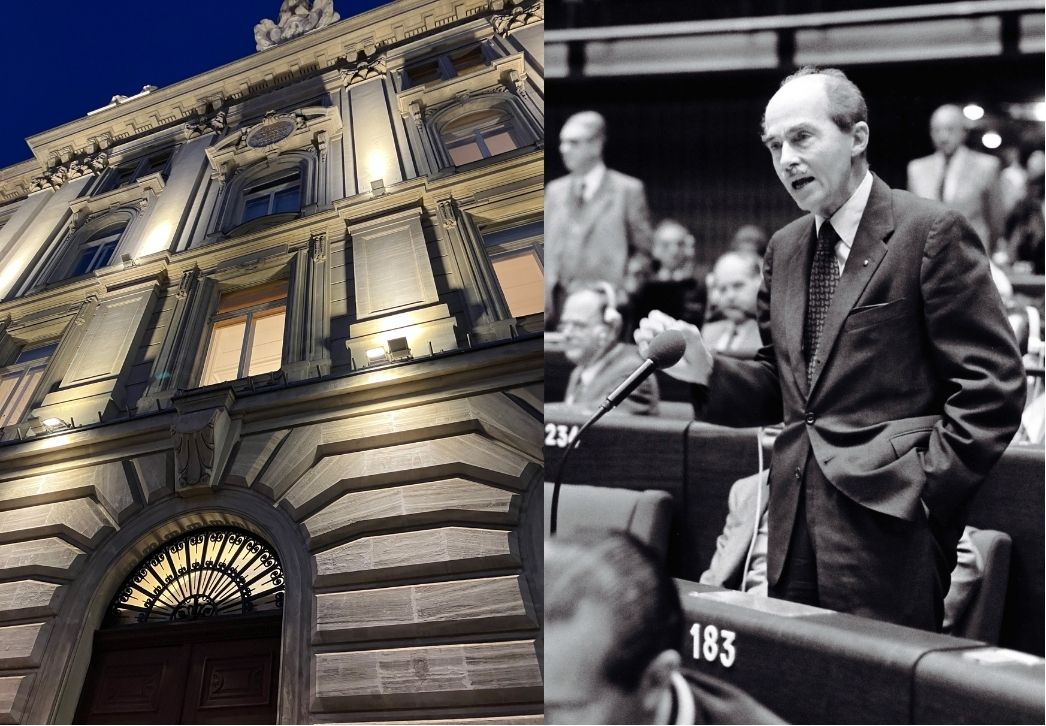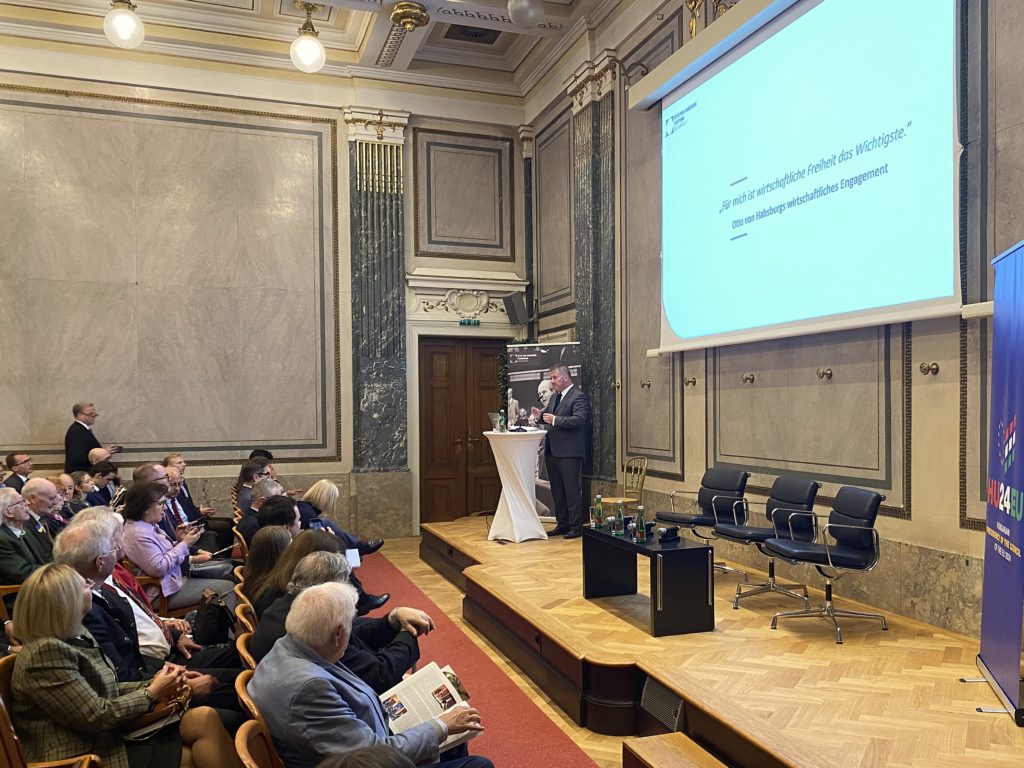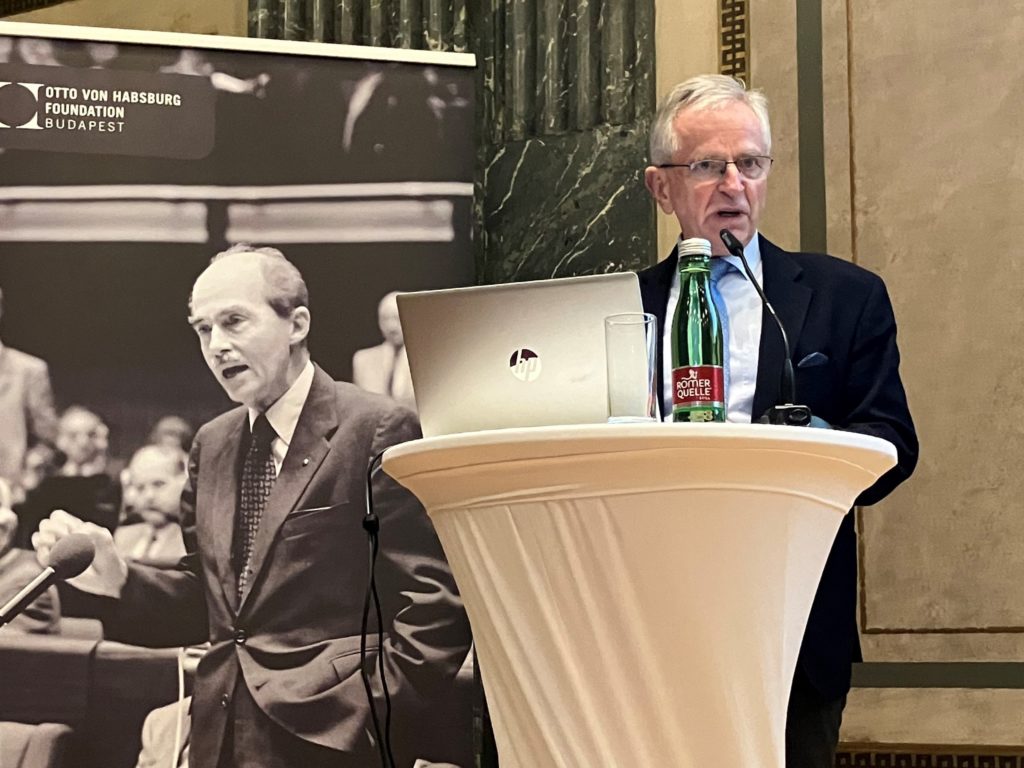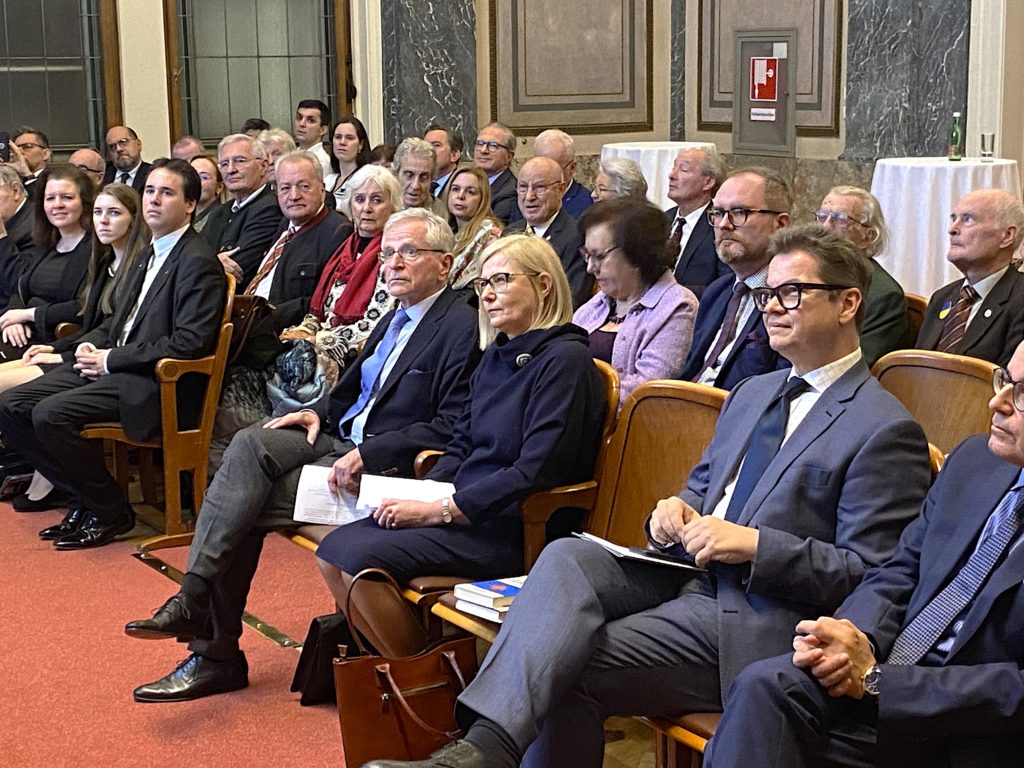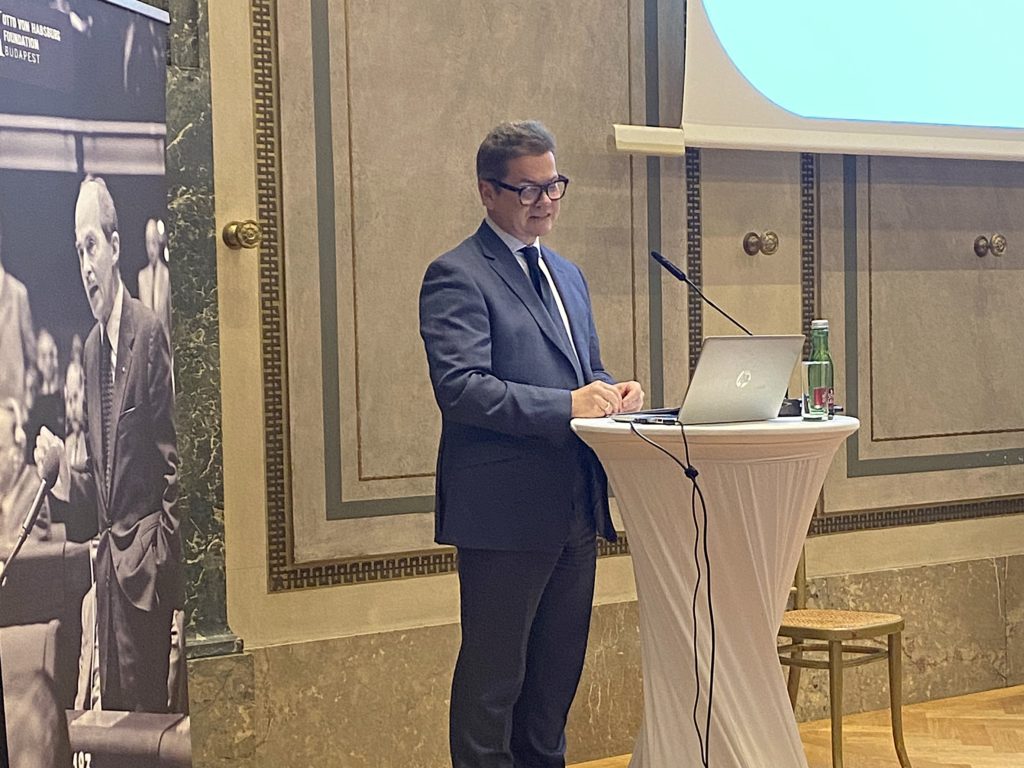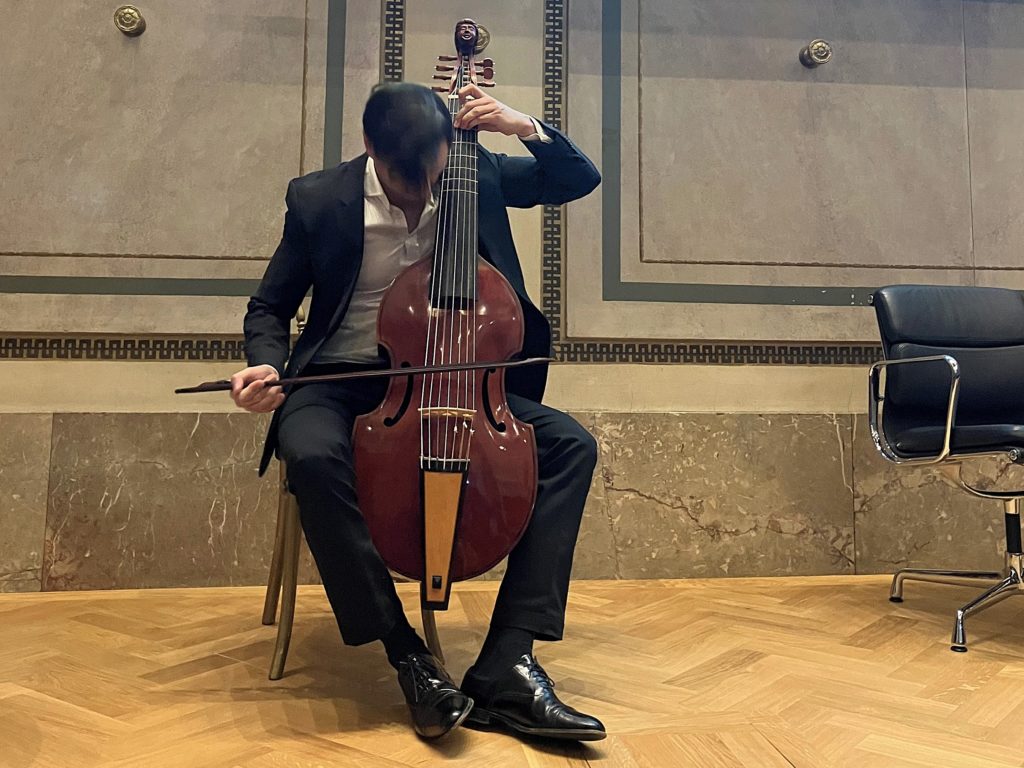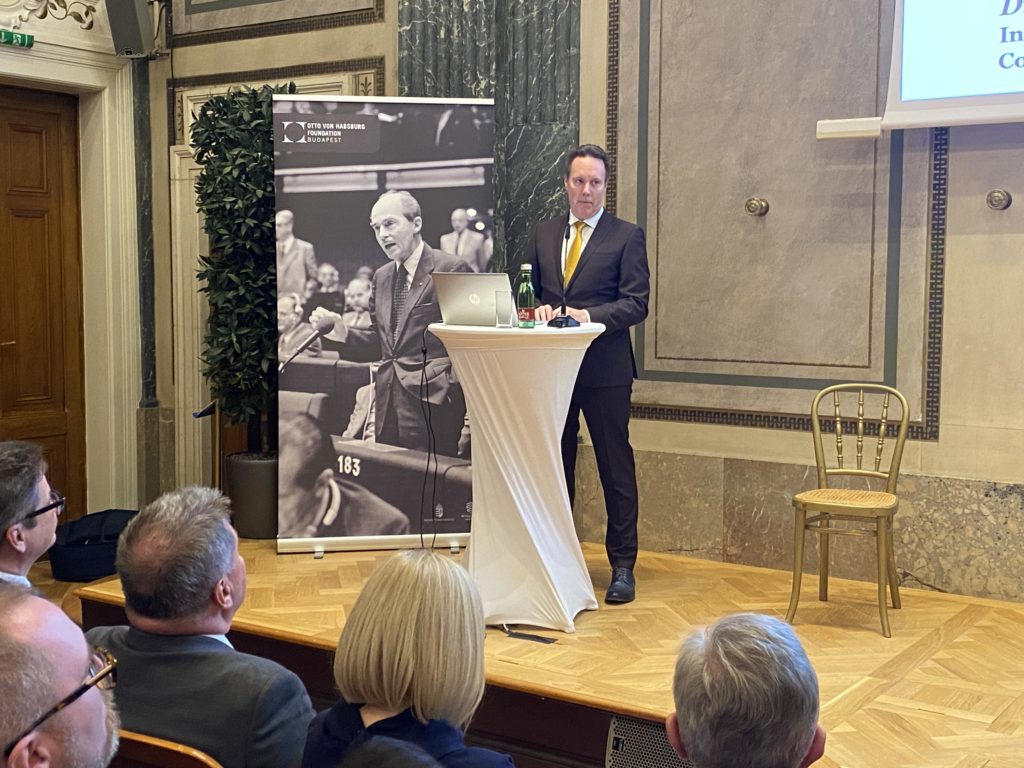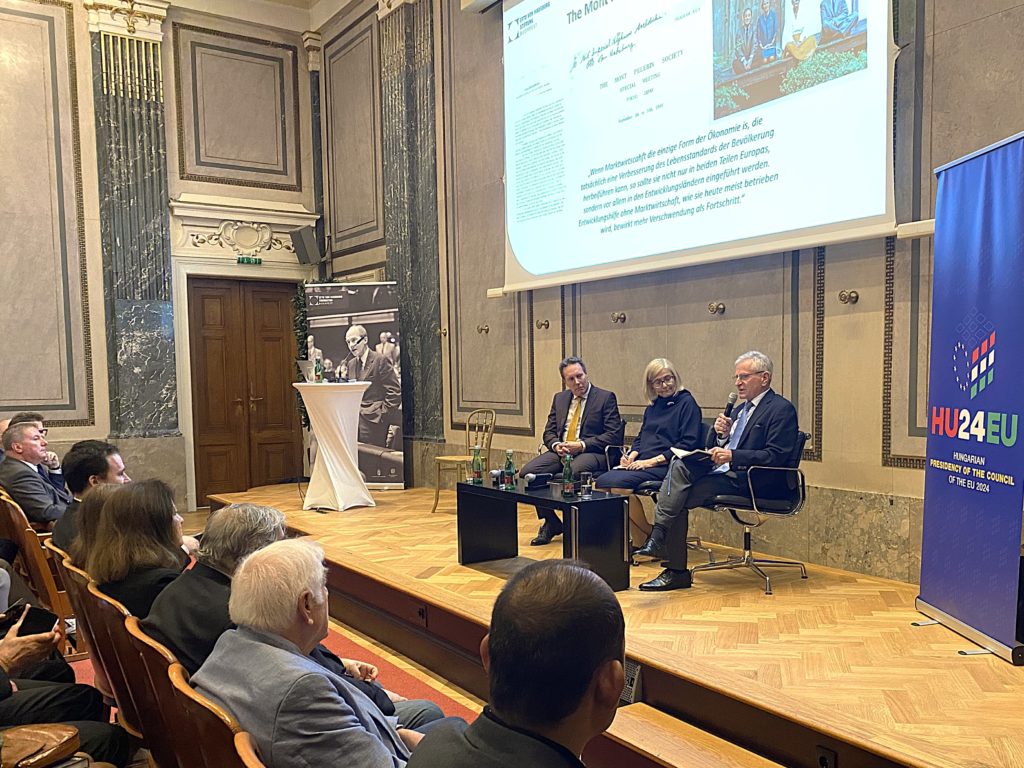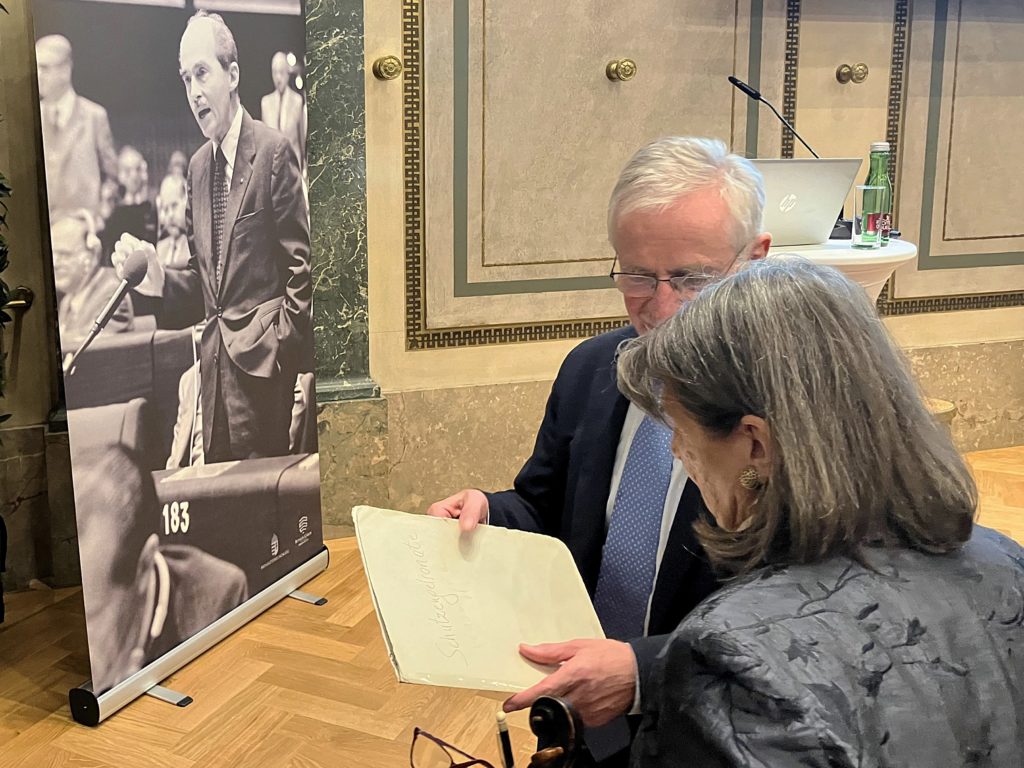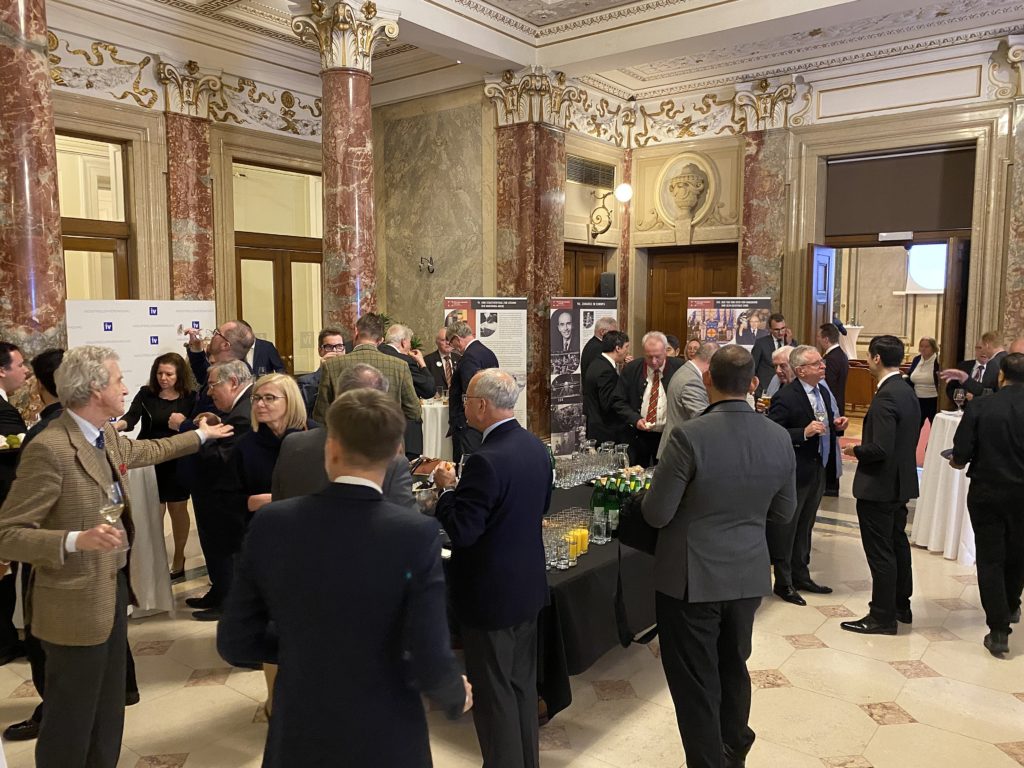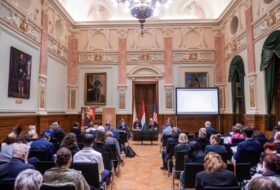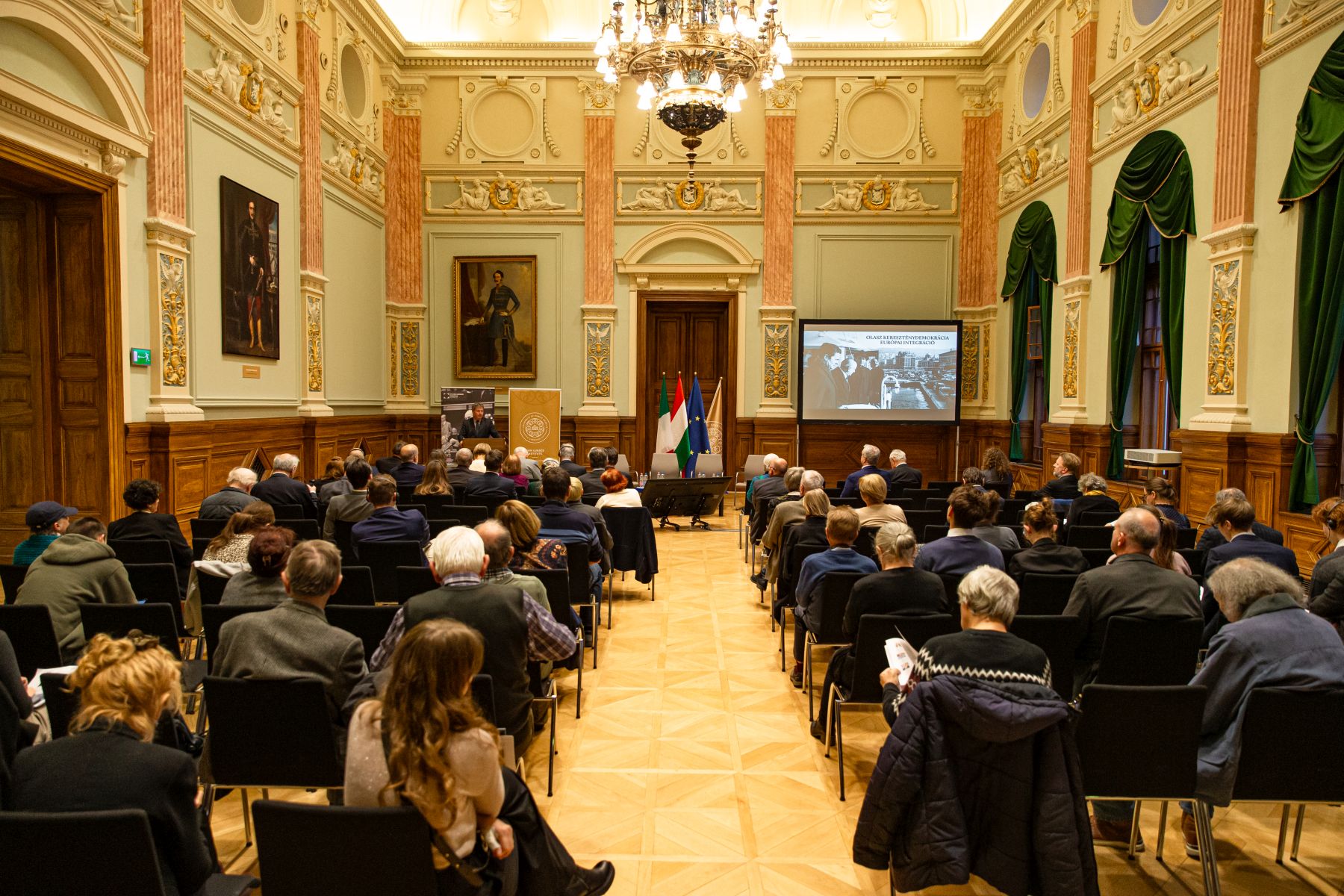It is less well known that Otto von Habsburg not only showed a strong affinity for political issues and soon became a major actor in European and world politics, but also closely followed developments in economic theory and world economic trends. His views were shaped primarily by thinkers of later generations of the Austrian school of economics, who played a major role in shaping the activities of the Mont Pelerin Society, to which he became associated in the 1950s. However, examining the links between the former heir to the throne and the prominent figures of the Austrian school is not only of historical interest: it also provides an insight into how the school shaped the economic and social policies of the second half of the twentieth century and can provide valuable insights into the economic challenges of our time.
Our Foundation’s event in Vienna at the end of October, which took place in the historicist-style building of the Vereinigung der Österreichischen Industrie (Federation of Austrian Industries) on Schwarzenberg Square, was an opportunity to discuss all these issues. It is interesting to note that the leadership of the organisation representing the interests of industrialists and Otto von Habsburg maintained a close relationship for decades, not only through his association with its founding president Hans Lauda, grandfather of the famous racing driver Niki Lauda, but also through Herbert Krejci, who served as Secretary General for many years.
In his opening speech, the Director of our Foundation, Gergely Prőhle, aimed to contextualise the economic interests of our namesake and to present them in the light of the former politician’s wider work. He quoted from two essays by Otto von Habsburg, both of which addressed the importance of the individual and the role of the free market in the economy, and underlined the significance of the principle of subsidiarity. Edit Szilágyiné Bátorfi, Hungary’s Ambassador to Austria, who was an active participant of the event not only as a diplomat but also as an economic expert, described the relevance of the event in the context of the Hungarian EU Presidency’s priority of improving competitiveness. Christoph Neumayer, Secretary General of the Federation of Austrian Industries, then recalled in a personal introduction his encounter with Otto von Habsburg a few decades ago at the launch of a volume he himself had actively participated in editing together with Helmut Wohnout, Director General of the Austrian State Archives. The Secretary General also stressed the topicality of the basic principles of the Austrian school, pointing out that the lessons drawn from historical experience are particularly valuable in meeting today’s challenges.
In his keynote speech, Wilhelm Molterer, former Finance Minister and Vice-Chancellor of Austria, pointed out that the influence of the Austrian economic school had initially been relatively limited, becoming even more marginalised after the Great Depression and only gaining in importance after the disenchantment with Keynesian economics and central planning and monetary policy in general. He underlined that current challenges, such as the climate crisis and war, need to be placed in the broader context of the transformation of the global order, and pointed out how the principles advocated by the school can help to strengthen the resilience of today’s European economies.
The following reflections began with a speech by Gergely Kőhegyi, Deputy Head of Department at the Corvinus University of Budapest. In his presentation, he outlined the antecedents, history of influence and reception of the Austrian school of economics, highlighting the most important cornerstones of its thinking. He said that the school emphasised the role of individuals and their personal preferences, and was also averse to the mathematical description of economic correlations. Bence Kocsev presented Otto von Habsburg’s connections with the movement’s contemporaries such as Friedrich August von Hayek, Ludwig von Mises and Fritz Machlup, on the basis of documents in the Foundation’s collection. He discussed the role of our namesake in the Mont Pelerin Society, the most important lessons of the correspondence between the former Archduke and the economists who had greatly shaped the organisation, and briefly shed light on the influence of the principles represented by the Society on the political positions of the former MEP.
Following the presentations, in a panel discussion introduced and moderated by Ambassador Edit Szilágyiné Bátorfi, Wilhelm Molterer and Gergely Kőhegyi first analysed the lessons of the regime change in Central Europe. The participants then provided a deeper insight into how the global economic environment is shaping regional opportunities and pointed out strategies that European countries could adopt to enhance their future competitiveness.
The event was enriched by the music of Margit Víg, a Vienna-based artist, and her son Christoph Urbanetz, who played baroque violin and viola da gamba, and was concluded by a reception.
